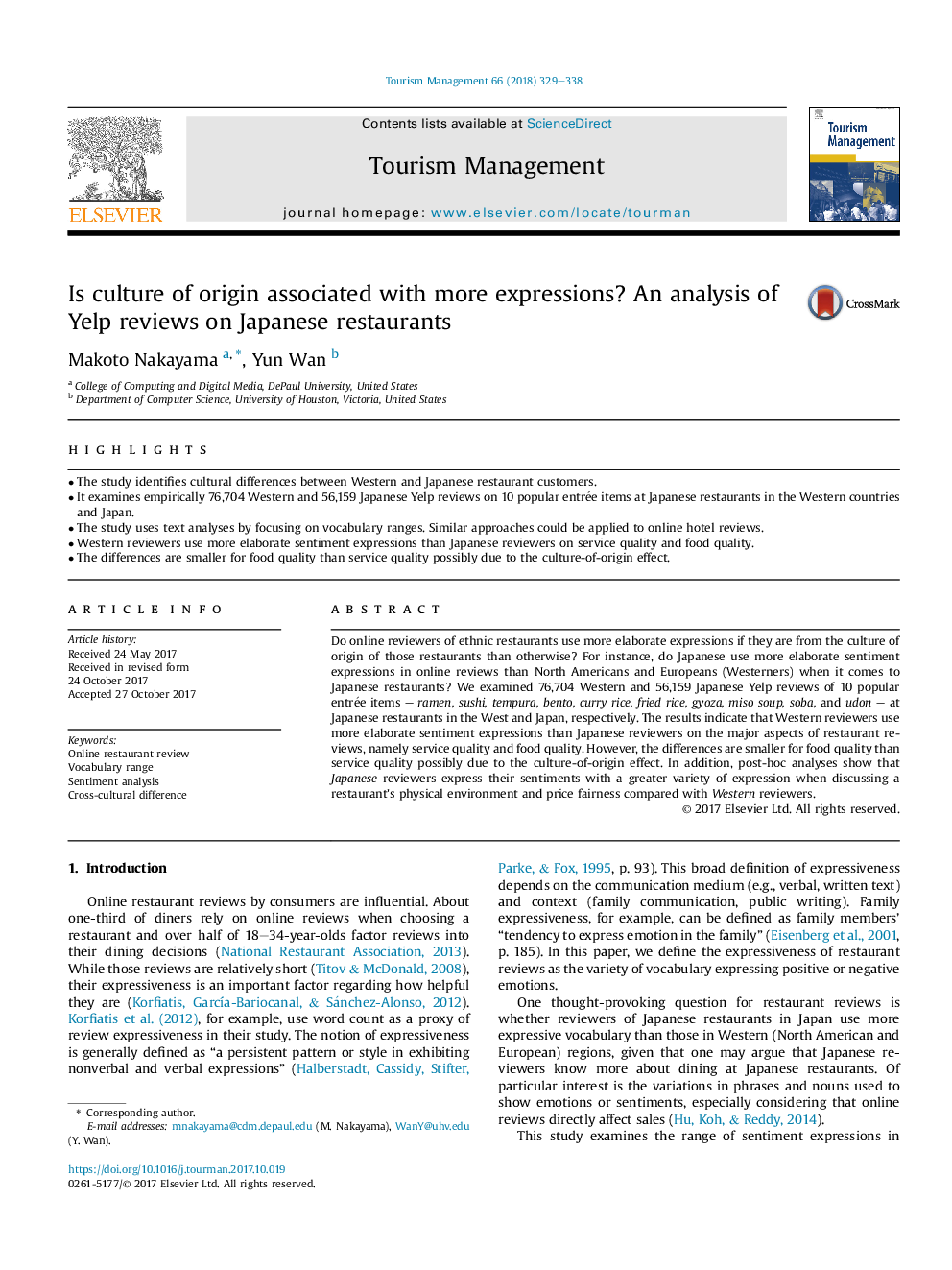| Article ID | Journal | Published Year | Pages | File Type |
|---|---|---|---|---|
| 7421139 | Tourism Management | 2018 | 10 Pages |
Abstract
Do online reviewers of ethnic restaurants use more elaborate expressions if they are from the culture of origin of those restaurants than otherwise? For instance, do Japanese use more elaborate sentiment expressions in online reviews than North Americans and Europeans (Westerners) when it comes to Japanese restaurants? We examined 76,704 Western and 56,159 Japanese Yelp reviews of 10 popular entrée items - ramen, sushi, tempura, bento, curry rice, fried rice, gyoza, miso soup, soba, and udon - at Japanese restaurants in the West and Japan, respectively. The results indicate that Western reviewers use more elaborate sentiment expressions than Japanese reviewers on the major aspects of restaurant reviews, namely service quality and food quality. However, the differences are smaller for food quality than service quality possibly due to the culture-of-origin effect. In addition, post-hoc analyses show that Japanese reviewers express their sentiments with a greater variety of expression when discussing a restaurant's physical environment and price fairness compared with Western reviewers.
Related Topics
Social Sciences and Humanities
Business, Management and Accounting
Strategy and Management
Authors
Makoto Nakayama, Yun Wan,
